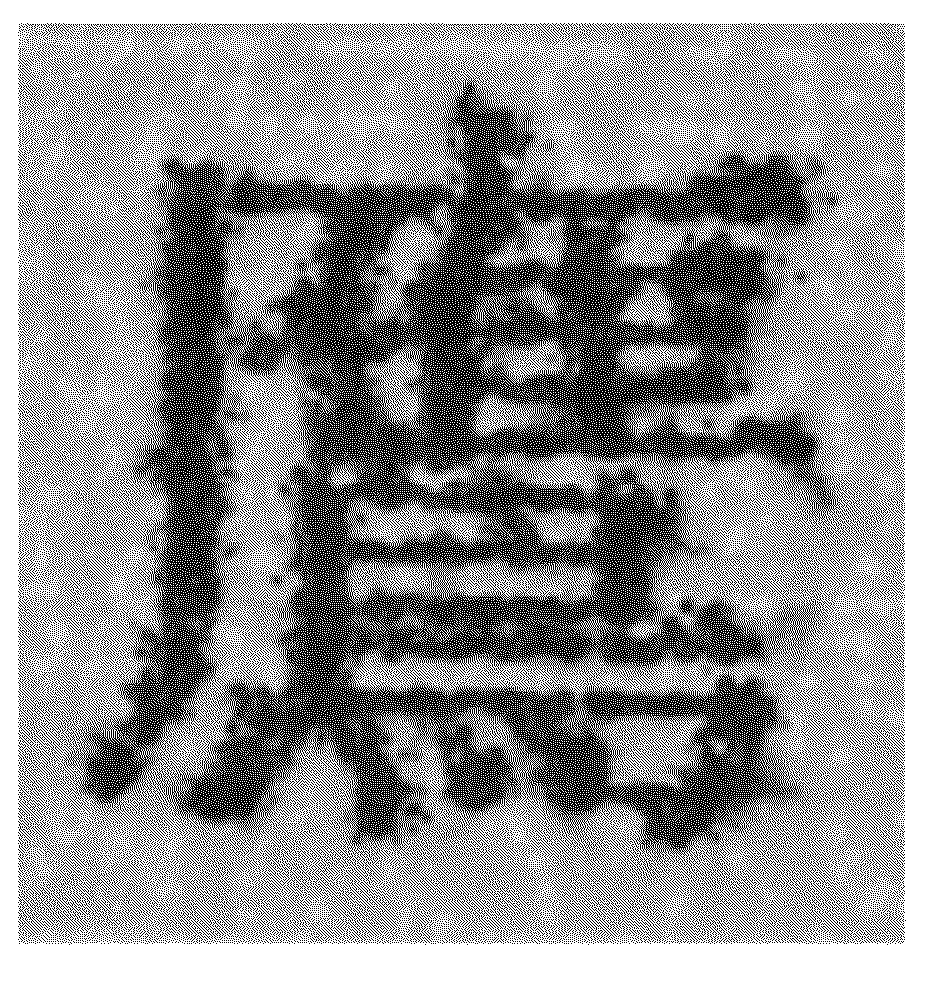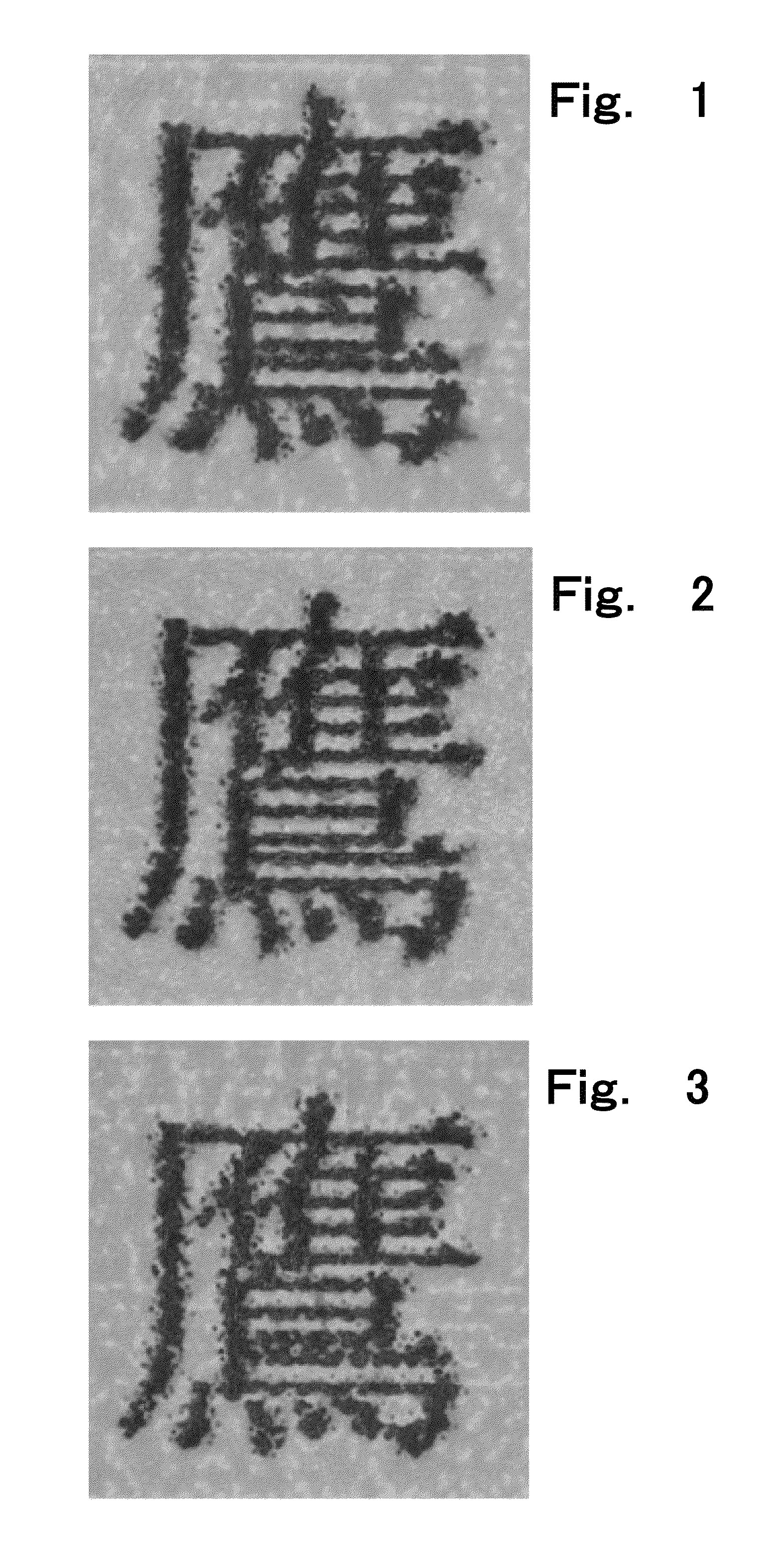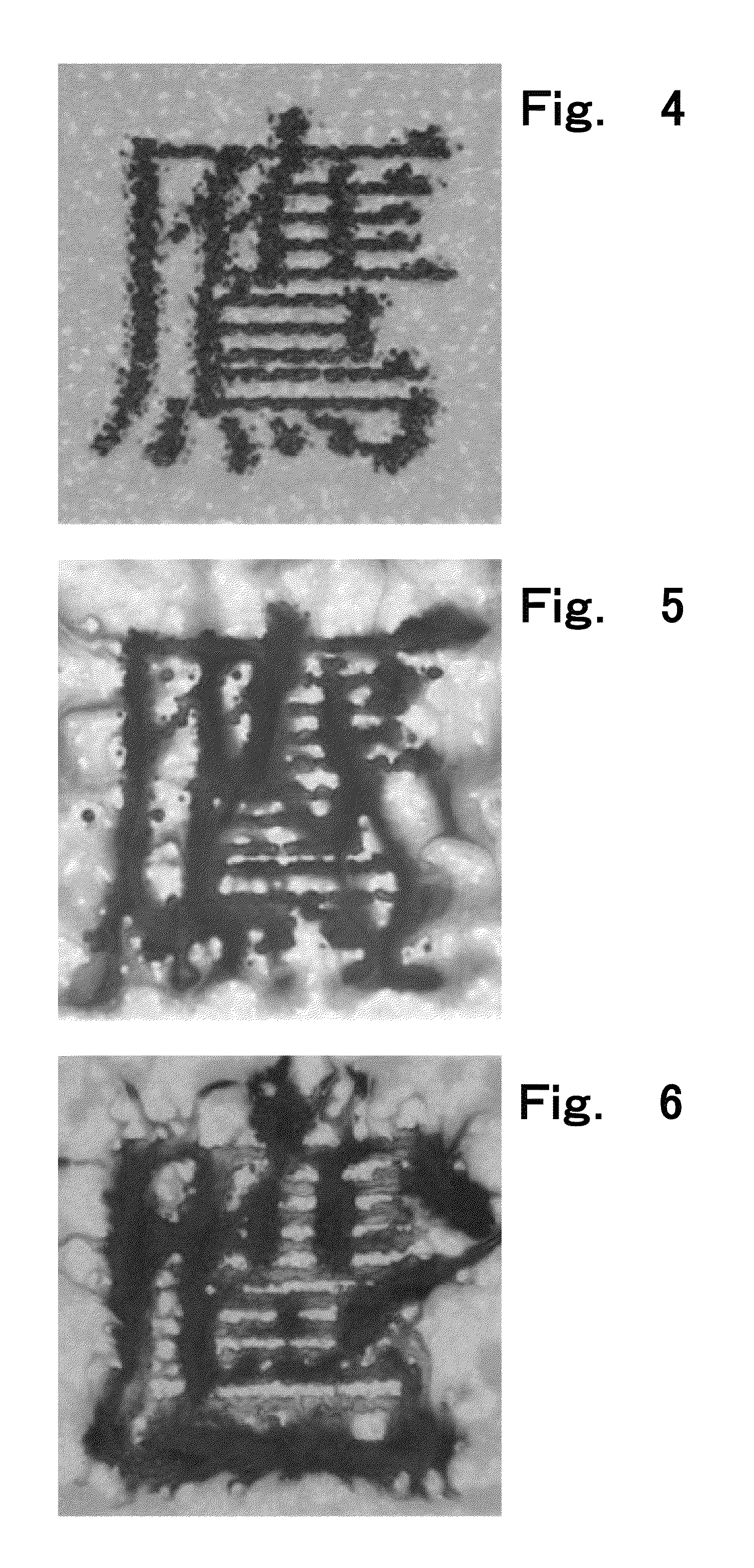Inkjet recording method and ink set for inkjet recording
a technology of inkjet recording and recording method, which is applied in the direction of inks, instruments, printing, etc., can solve the problems of limited printing accuracy, insufficient density, and insufficient penetration of ink
- Summary
- Abstract
- Description
- Claims
- Application Information
AI Technical Summary
Benefits of technology
Problems solved by technology
Method used
Image
Examples
example 1
[0182]An ink-receiving solution prepared by using CaCl2 as a metal salt to ensure that the metal concentration became 0.1 mol / l in the ink-receiving solution and gelatin as a resin to ensure that the resin concentration became 5 mass % in the ink-receiving solution as shown in Table 5 was heated at 60° C. and applied uniformly to the entire surface of coat paper by means of a wire bar (#10) which is a kind of coating means and dried at the ambient temperature. The amount of the ink-receiving solution applied to the recording medium was 200 μmol / cm2 as a metal salt.
[0183]An inkjet ink having the above composition and containing the pigment dispersions 1, 3, 4 and 5 and the anionic resin emulsion 2 was used to print a Chinese character meaning “falcon” at 12-point on the surface of coat paper to which CaCl2 and the resin were adhered with different colors for the background and the character and using a piezo drive system inkjet recording device (manufactured by Seiko Epson Corporatio...
example 2
[0184]Printing was carried out in the same manner as in Example 1 as shown in Table 5 except that polyvinyl alcohol was used as a resin. The print product is shown in FIG. 2. The bleeding of the obtained print product was evaluated.
example 3
[0185]Printing was carried out in the same manner as in Example 1 as shown in Table 5 except that calcium pantothenate (concentration in the ink-receiving solution: 0.1 mol / l) was used as a metal salt. The print product is shown in FIG. 3. The bleeding of the obtained print product was evaluated.
PUM
| Property | Measurement | Unit |
|---|---|---|
| particle diameter | aaaaa | aaaaa |
| grain size | aaaaa | aaaaa |
| average primary particle diameter | aaaaa | aaaaa |
Abstract
Description
Claims
Application Information
 Login to View More
Login to View More - R&D
- Intellectual Property
- Life Sciences
- Materials
- Tech Scout
- Unparalleled Data Quality
- Higher Quality Content
- 60% Fewer Hallucinations
Browse by: Latest US Patents, China's latest patents, Technical Efficacy Thesaurus, Application Domain, Technology Topic, Popular Technical Reports.
© 2025 PatSnap. All rights reserved.Legal|Privacy policy|Modern Slavery Act Transparency Statement|Sitemap|About US| Contact US: help@patsnap.com



